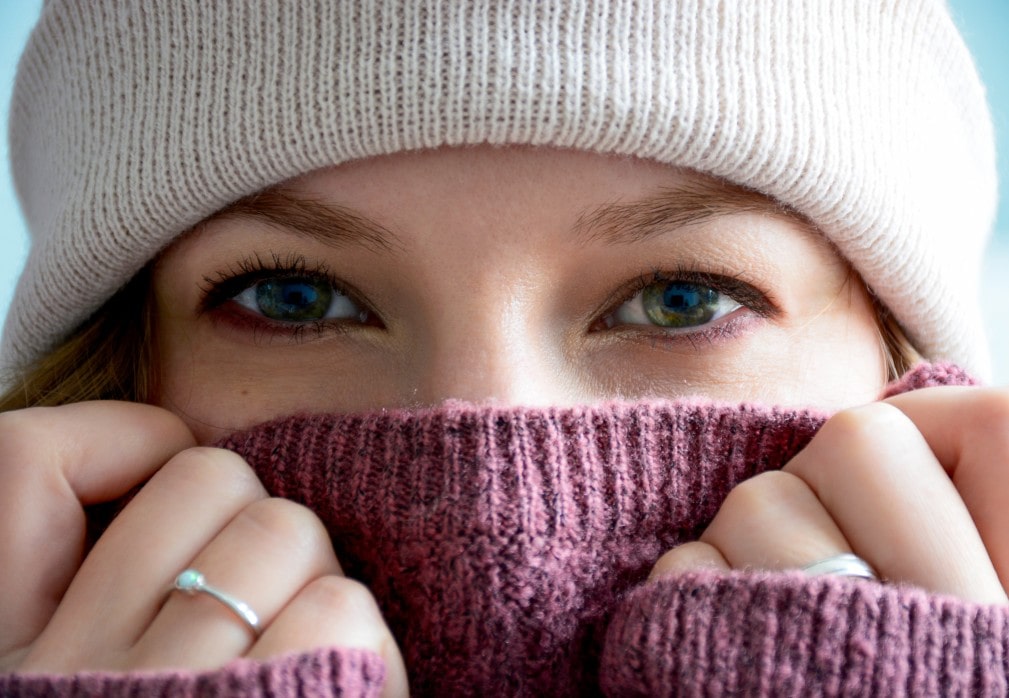
When the chilly and dry air of Fall begin to roll in, we often take steps to protect ourselves from the impending cold and flu season. But it may surprise you to know that the briskness of Fall and Winter may have a few potential risks in store for our vision as well.
3 Factors That Impact Your Vision in The Fall
#1: Dry Air
As outdoor temperatures drop during the Fall into Winter, the air becomes colder and can no longer hold as much humidity as warmer air present during the rest of the year. Cold winter winds are especially dehydrating to our eyes and skin which are comprised mostly of water. When the air is dry, the eye surface (which is 99% water) loses moisture content to accelerated evaporation and can become dry, dehydrated and irritated.
#2: Reflected UV Radiation
It’s commonly known that excessive UV exposure from direct sunlight puts us at greater risk for skin cancer and can even lead to cataracts—hence the reason we’re advised to wear sunglasses and sunscreen during long periods of outdoor activity. UV radiation is also a risk during these colder months, and a decrease in temperature does not mean a decrease in these damaging rays. They still pose just as much a threat to our eyes as during the Spring and Summer months.
#3: Indoor Air
Dry air isn’t just problematic outside during the cooler months. When we heat our homes during the colder months, this also results in some unwanted side effects. Warm, dry air is even more dehydrating than cool dry air and creates an uncomfortable and dehydrating environment for our eyes and skin. Recirculated indoor air also makes for a breeding area of bacteria in far greater amounts than fresh outdoor air that is allowed in during warmer times of the year.
Maintaining Healthy Fall/Winter Vision Is Simple
Although the cold, dry air of Fall and Winter may not be ideal for optimal vision health, there are plenty of solutions to keep your eyes clear, comfortable, and healthy, such as:
- Keep your eyes moist. Placing a humidifier in your home can drastically improve dry indoor air conditions. Moisturizing eye drops can relieve dry eyes as well. Feel free to ask us which drops would be right for you during your visit!
- Wear sunglasses in the winter. Choose sunglasses with UV protection to ensure your vision is safe from damaging UV-rays.
- Consider wearing eyeglasses more frequently than contact lenses. Regular eyeglasses do a better job of protecting your eyes from the harsh, cold winds and can even help hold heat and moisture close to the eyes.
We Protect Your Vision All Year Long
Whether you’re enjoying a warm summer day on the beach or taking in a brisk winter day on the slopes, we want to ensure your vision is as clear and comfortable as possible. If you have any questions about how to protect your vision this season, please let us know and request an appointment here! We are committed to providing unique, personalized care for every one of our patients, no matter what season it is.

